What now for Syria?
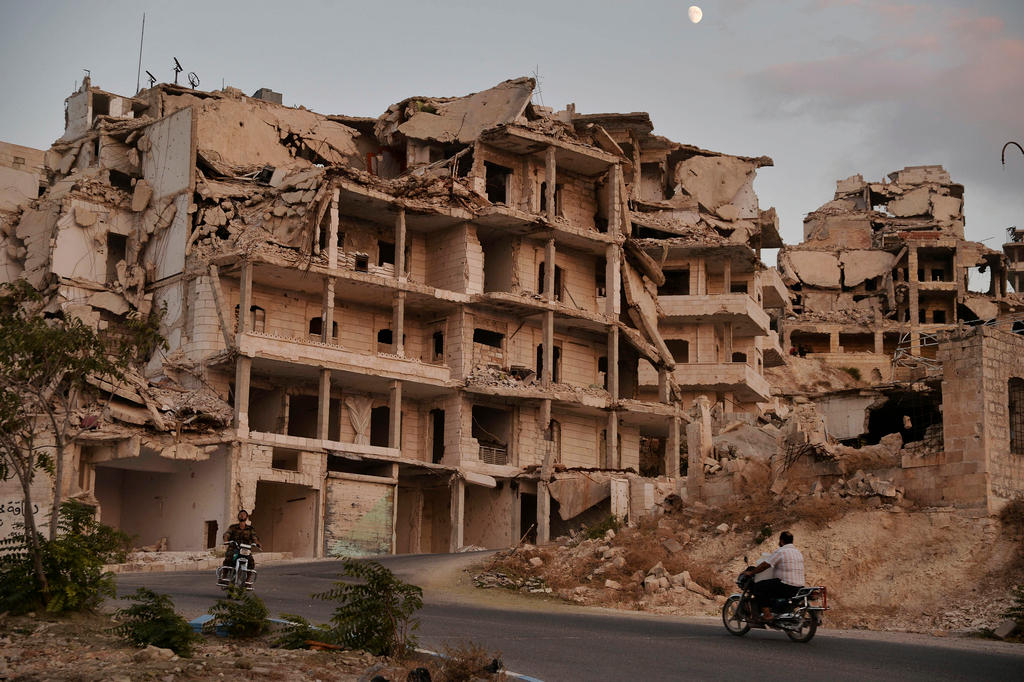
“It is really playing with a gigantic powder keg in the middle of three million civilians”. These were the words of Jan Egeland, the United Nation’s humanitarian advisor for Syria, on his final day in office last month after chairing his last meeting of the UN’s humanitarian task force.
He was talking about Idlib, the last Syrian city still in rebel hands. The buffer zone created around the city by Russia and Turkey was starting to fray: there had been artillery and air attacks, armed incursions, and tension was rising.
Idlib, many still believe, could be the last, and possibly bloodiest battle in Syria’s long and bloody war. When Aleppo fell, and then again when Eastern Ghouta succumbed, many opposition figures and their families escaped to Idlib fearing, with some justification, possible brutal reprisals by the Syrian government.
Now government forces are closing in, and Idlib is home, it’s believed, to around 30,000 fighters and those three million civilians Jan Egeland worries about. And yet Egeland, who has worked doggedly for the protection of Syrian civilians for years, has left office. His boss, the UN special envoy for Syria, Staffan de Mistura, will follow him at the end of the month.
To many, it’s a strange moment to leave: the humanitarian needs in Syria remain immense, and the war, while perhaps quieter, is by no means over.
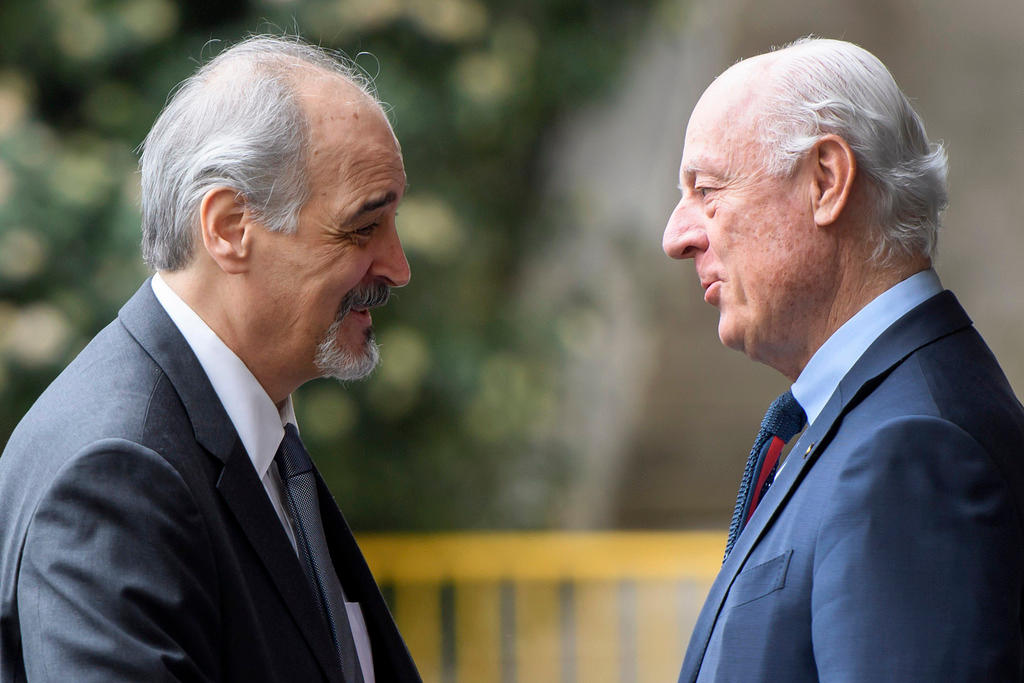
UN relegated?
But the fact is for quite some time the future of Syria has been determined not in Geneva, within the framework of a UN sponsored peace process, but in Astana, in a rival strategy developed by Russia, Iran and Turkey. That strategy became possible after Russia entered the war, using its massive air power to back up Syrian forces as they retook one rebel-held region after another.
So, after seven long years, does this mark a failure for the UN? There have been three UN special envoys: Kofi Annan and Lakhdar Brahimi left office with little to show for their hard work, Staffan de Mistura stayed longer, but is now leaving too.
The UN invested years of diplomacy, there were round after round of negotiations in Geneva. I reported on nearly all of them, and looking back now, it feels strange to remember how they began with grand diplomatic pomp, ceremony and even hope, attended by hundreds of journalists, and gradually shrank to painstaking attempts by Mr de Mistura not to achieve peace, but to build a structure for a constitutional committee, which would at some indeterminate date in the future draft a new constitution for Syria.
High drama, farce, and boredom
In between, we saw talks which veered from high drama to farce to – let’s be honest, boredom – at least for me and many journalists. There were times when one or other delegation said they would come to Geneva but then didn’t. There were times when people stormed out. They rarely even met in the same room: Mr de Mistura and his predecessors had to scuttle, like weary medieval messengers, between them.
Lakhdar Brahimi did once get them into the same room, briefly, but at a specially shaped table so that they were not required to look each other in the eye.
There were sleepless nights while we waited for an ever-delayed press conference. There were times when the talks shifted from the UN Palais des Nations to the 5-star Geneva hotels of the participants. Without fail, this tactic happened in winter, and journalists would invariably be told by the police to wait outside in the street. This was confirmation that there had been no progress was then tweeted and texted by fingers numb with cold.

UN failure?
So, is Syria a failure for the UN? Many would argue yes. The conflict, which started with peaceful demonstrations in one country, has lasted longer than the Second World War. Millions have been displaced, hundreds of thousands killed, many regional powers have joined the fight, and Syria’s great historic cities lie in ruins.
But when asked this question, Jan Egeland prefers to see the failure on a wider level.
“I strongly feel we all failed the Syrian civilians,” he told me on that final day in office. “This war was about letting all hell loose on heavily populated areas full of vulnerable people.”
“First and foremost, [I blame] the men with guns and power. The warring parties on the ground failed their own peoples, because they were willing to fight each other to the last civilian.”
“Then I would say those who were sponsors, those who gave the arms, those who fought with the warring parties, those who brought fuel to the fire.”
“And then [I blame] all of us who were not able to curb this violence by not getting them to stop.”
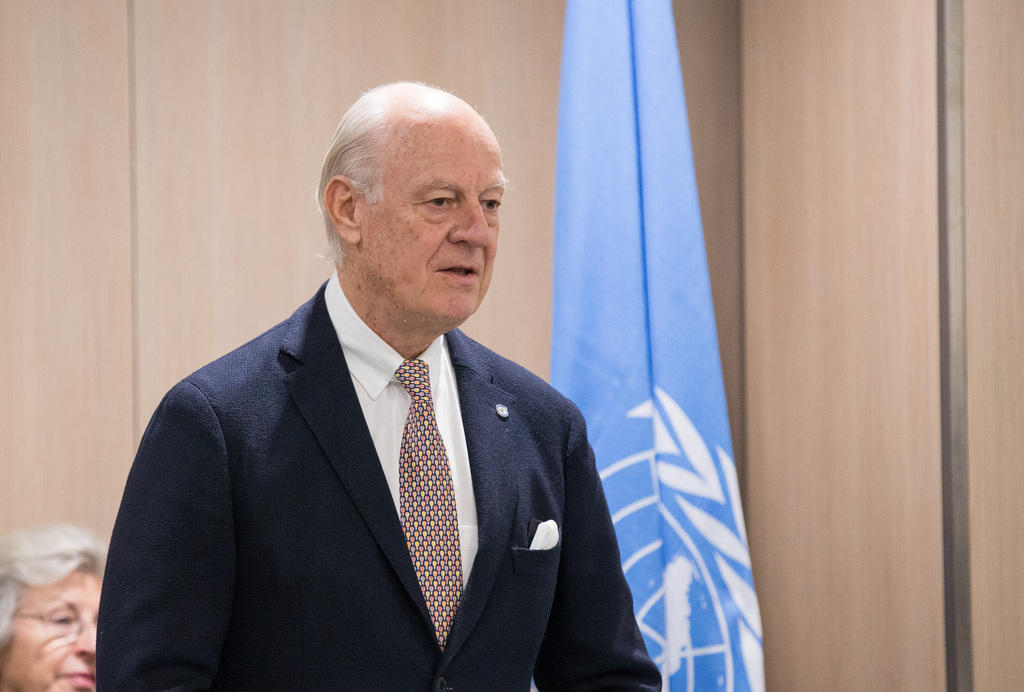
More
Syria: what will it take to make peace?
So, what happens now?
The UN has certainly not given up on Syria. In the last few days aid agencies have appealed for $5.5 billion (CHF5.4 billion) to assist Syrian refugees and host countries next year. Because, although a trickle has begun to return (around 37,000 this year), for most of the 5.6 million refugees it is simply not safe to go back yet. Many have no documents to prove ownership of the land or property they left behind, many homes are destroyed, so too are schools, hospitals, water and electricity supplies.
There will be a new UN envoy too, Norwegian diplomat Geir Pedersen. He is sometimes described as a ‘diplomat’s diplomat’, and has extensive experience of the Middle East, and of complex conflicts.
Mr Pedersen is expected to name a new humanitarian adviser to replace Jan Egeland: humanitarian support will remain vital in Syria for many months, probably years.
And until Staffan de Mistura leaves office he will spend his remaining efforts still working towards that elusive constitutional committee. It sounds bureaucratic and over complicated, but Mr De Mistura, Mr Pedersen after him, and the entire UN system, have their eyes on peace, not the frozen war which Russia and its allies have managed to impose across large parts of Syria.
Any experienced diplomat will tell you that a constitution backed by a country’s population is a foundation stone for a sustainable peace. So too are reconciliation, and accountability for war crimes.
These are all things the UN has huge experience of, and it will try to achieve them for Syria, and its long-suffering civilians.
In the meantime, Jan Egeland warns that the whole world must learn from Syria’s conflict.
“We need to learn from this war. Is this how war will be fought in the future? Then we are really trampling on 150 years of humanitarian principles,” he said. “I really hope that in Moscow and Tehran, and Ankara and in Washington and Riyadh they have learnt: let us not let small conflicts become big wars.”
You can follow Imogen Foulkes on twitter at @imogenfoulkes, and send her questions and suggestions for UN topics.

In compliance with the JTI standards
More: SWI swissinfo.ch certified by the Journalism Trust Initiative










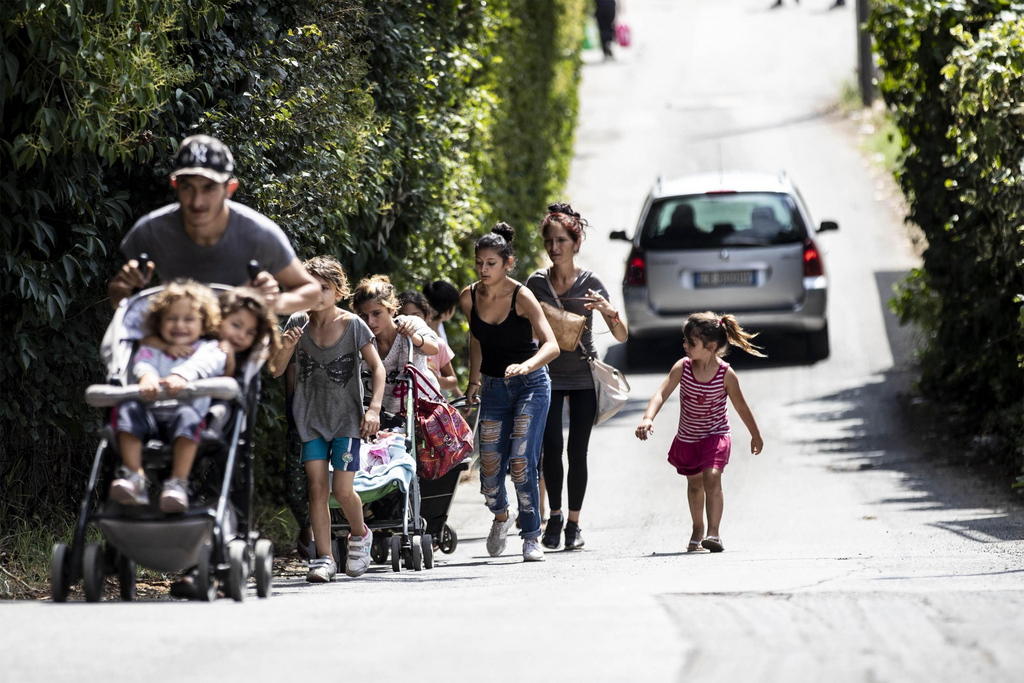
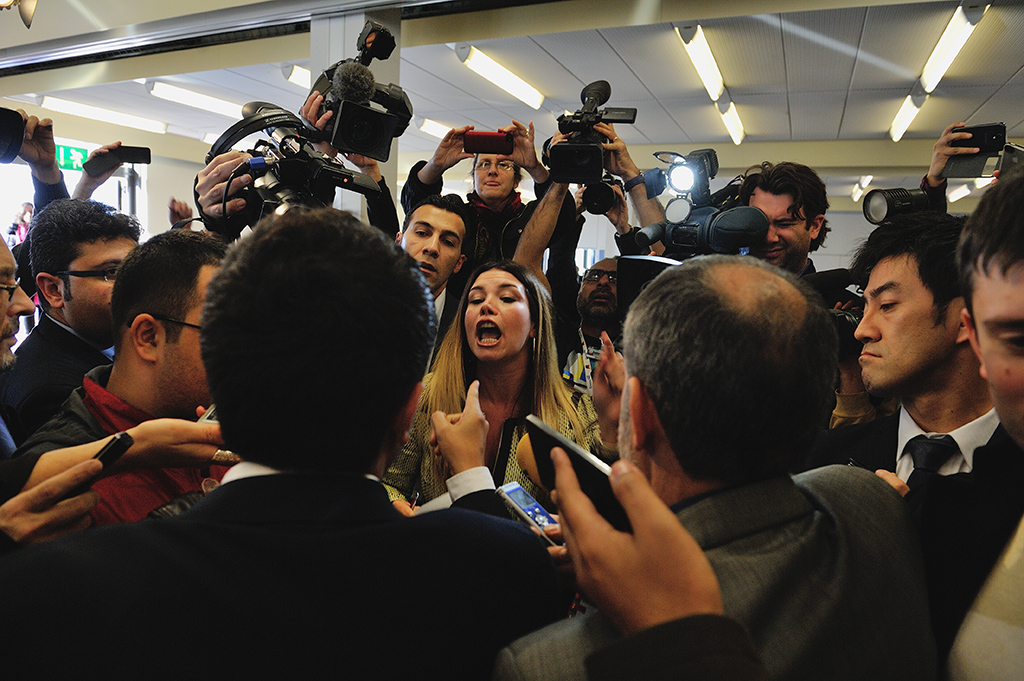
You can find an overview of ongoing debates with our journalists here . Please join us!
If you want to start a conversation about a topic raised in this article or want to report factual errors, email us at english@swissinfo.ch.